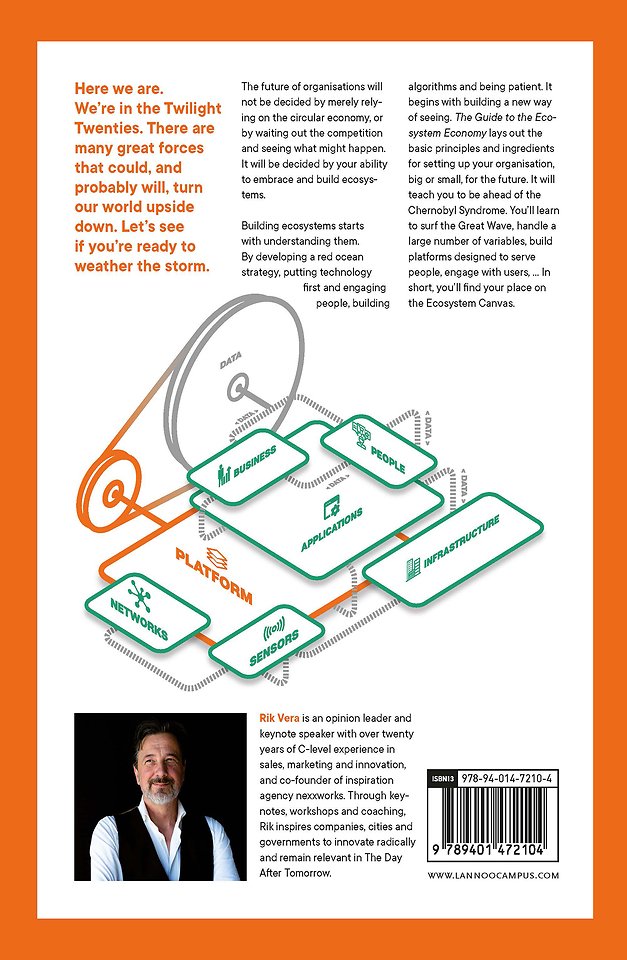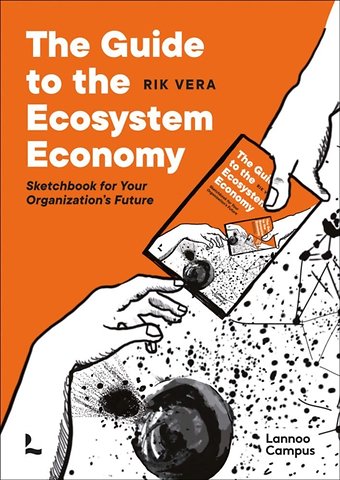The guide to the Ecosystem Economy
Sketchbook For Your Organization's Future
E-book Epub met watermerkbeveiliging Engels 2021 9789401472463Samenvatting
Here we are. We're in the Twilight Twenties. There are many great forces that could, and probably will, turn our world upside down. Let's see if you're ready to weather the storm.
The future of organisations will not be decided by merely relying on the circular economy, or by waiting out the competition and seeing what might happen. It will be decided by your ability to embrace and build ecosystems. Building ecosystems starts with understanding them.
By developing a red ocean strategy, putting technology first and engaging people, building algorithms and being patient. It begins with building a new way of seeing. The Guide to the Ecosystem Economy lays out the basic principles and ingredients for setting up your organisation, big or small, for the future. It will teach you to be ahead of the Chernobyl Syndrome. You'll learn to surf the Great Wave, handle a large number of variables, build platforms designed to serve people, engage with users, ... In short, you'll find your place on the Ecosystem Canvas.
Specificaties
Lezersrecensies
Anderen die dit kochten, kochten ook
Rubrieken
- advisering
- algemeen management
- coaching en trainen
- communicatie en media
- economie
- financieel management
- inkoop en logistiek
- internet en social media
- it-management / ict
- juridisch
- leiderschap
- marketing
- mens en maatschappij
- non-profit
- ondernemen
- organisatiekunde
- personal finance
- personeelsmanagement
- persoonlijke effectiviteit
- projectmanagement
- psychologie
- reclame en verkoop
- strategisch management
- verandermanagement
- werk en loopbaan







